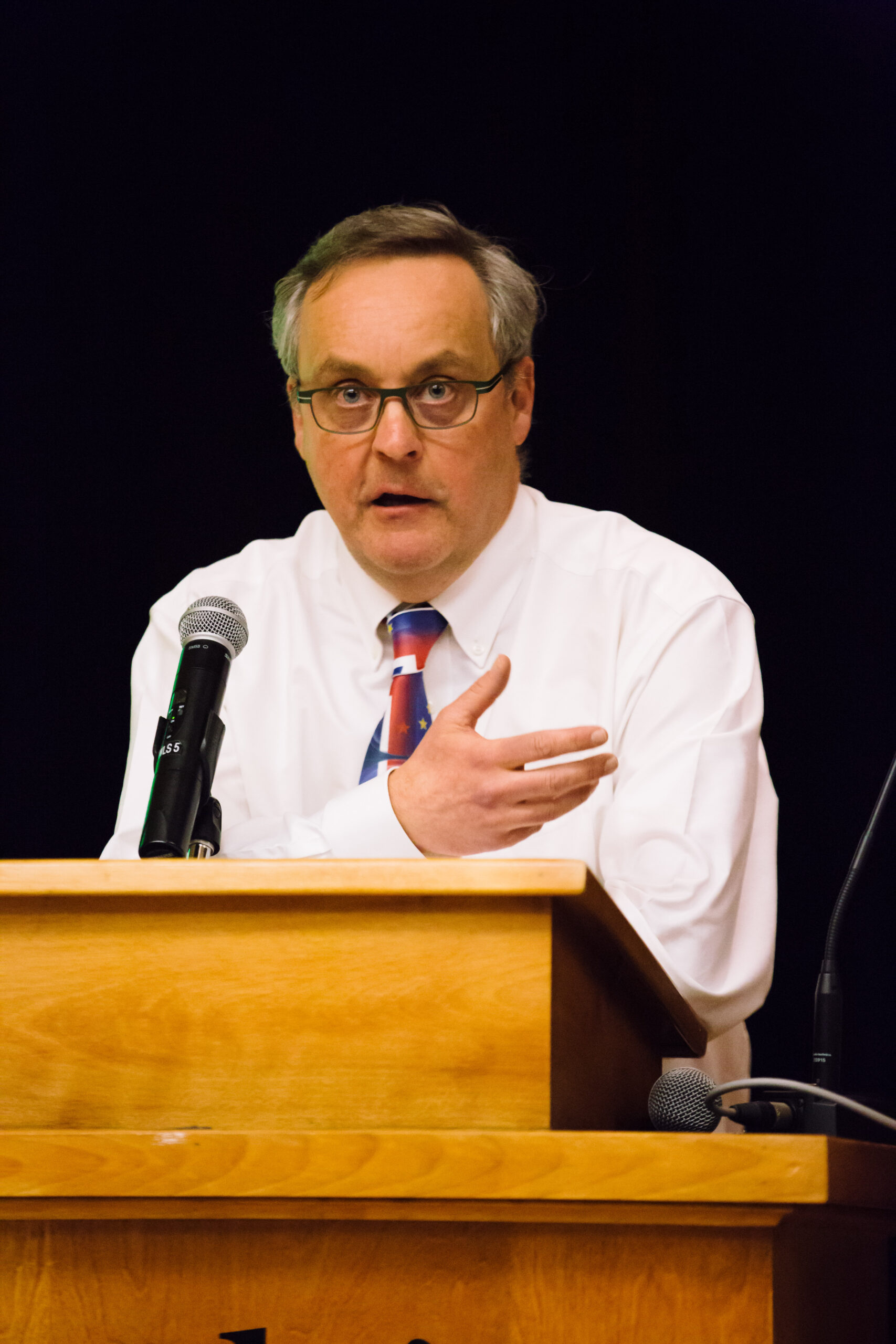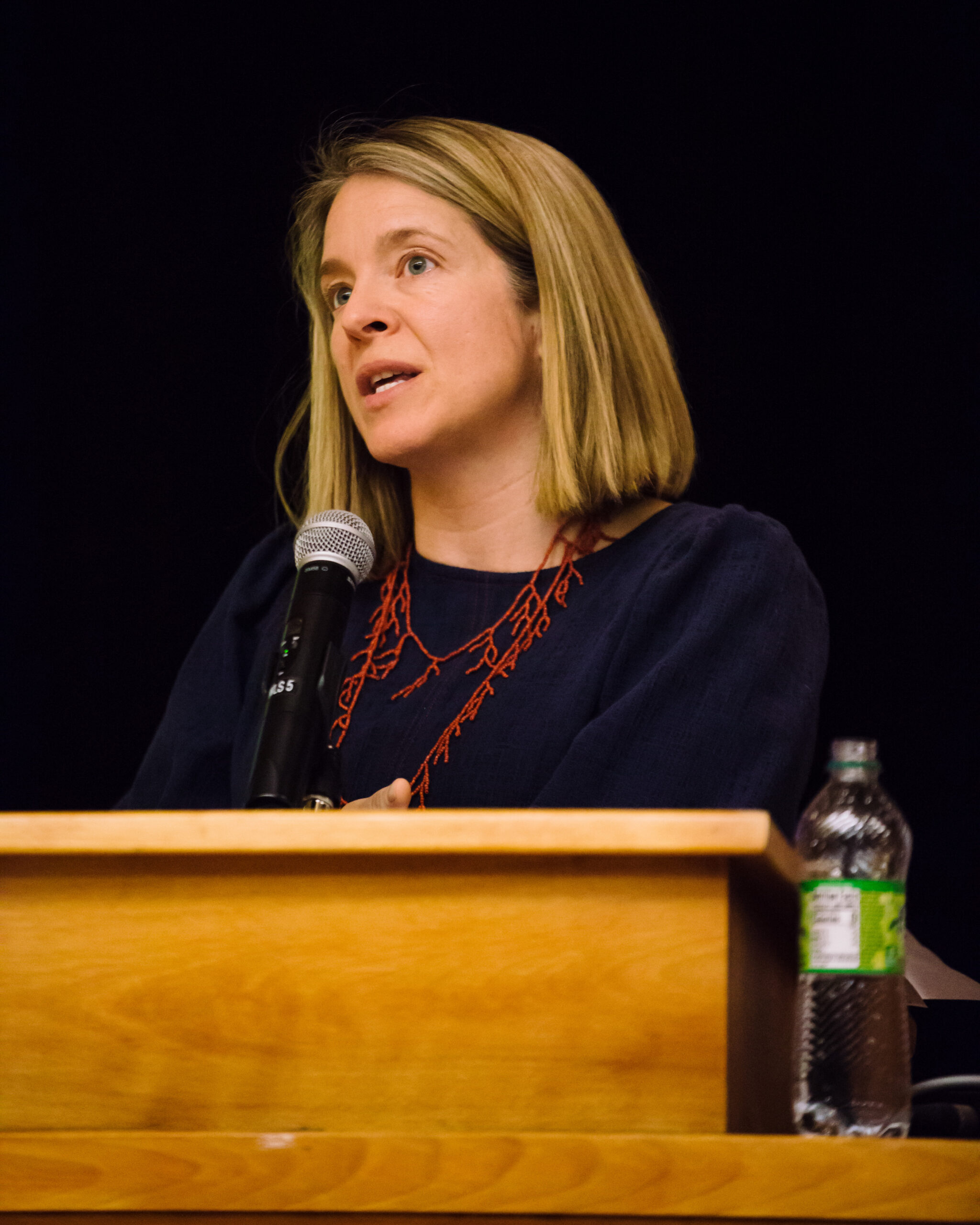‘Humorous and informative:’ two professors explain Brexit
February 8, 2019
Broken promises and straight-up lies were the subject of discussion on Tuesday evening as two government professors tried to explain Brexit.
The process has been even more complicated by the defeat of Prime Minister Theresa May’s proposed deal for the split on January 15. May has another chance to win over her Parliament on February 13.
Speaking before a large crowd in Kresge Auditorium, Henry Laurence, associate professor of Government and Asian Studies, and Laura Henry, associate professor of Government, discussed the approaching March 29 exit date. They reflected upon the bitterly fought 2016 referendum campaign narrowly won by “Leave” supporters, those who advocated in favor of the United Kingdom (UK) leaving the European Union (EU).
Laurence and Henry highlighted the skill of the United Kingdom Independence Party (UKIP) in energizing previously dormant voter bases, noting that a significant portion of “Leave” voters had not been active in politics before.
Laurence, wearing a half-Union Jack and half-EU flag tie, told the 200 attendees that some British tabloids spun a series of lies regarding Europe long before Brexit. These myths, Laurence said, included purported EU bans on curved bananas, double-decker buses and barmaids’ cleavage.
 PJ Seelert
PJ SeelertJared Foxhall ’22 described the talk as “humorous and informative.”
“It was shocking to see that many of the metrics illustrating stark ideological divides mirrored that of the United States,” he said.
With the Brexit deadline only six weeks away and the prospect of a no-deal Brexit, the professors identified the most significant unresolved issue as the border separating Northern Ireland, which is part of the UK, and the Republic of Ireland, an EU member. Laurence and Henry surmised that either a “backstop” will be agreed upon, effectively extending the status quo in Ireland, or no deal will be brokered, forcing the establishment of a hard border.
If the latter occurs, it would be the first time since the Good Friday Agreement that a hard border returned to Ireland. The 1998 deal, brokered by former Senator George Mitchell ’54, ended a bloody, decades-long ethnonationalist conflict. Laurence and Henry suggested that such a hard border could trigger a renewal of violence.
Speaking after the talk, Laurence admitted that he and Henry had originally intended to give the talk to their respective classes, “British Politics and Society” and “The Politics of the European Union.” However, Laurence soon realized there was popular demand for the talk.
“We quickly realized there had been demand for it,” he said. “We were talking to our friends and a lot of them said they’d like to come.”
 PJ Seelert
PJ SeelertReflecting on the talk, Laurence highlighted a few lessons he hoped observers had taken away.
“First is that elections matter, they have consequences,” he said. “There are a lot of people that would have voted ‘Remain’ and now wish they had, although turnout was very high.”
He also ascribed dishonesty as a theme that has relevance in today’s society, both in the UK and in the United States.
“The ‘Leave’ campaign promised things they couldn’t possibly deliver,” he said. “The politics of promising fantasies is unfortunately a powerful way to win elections and a terrible way to run a country, and that’s very relevant for all of us.”
Laurence said he hoped attendees of the talk would remember some of the deeper moral and political questions at play.
“If people came away realizing this is important—not only in its own light, but for what it tells us about how politics is headed in all democracies—then that will be worth it,” said Laurence.
When asked about his tie, Laurence explained he purchased it online from an artist cooperative.
“The tie was quite cheap,” he said. “But the express shipping—not so much.”

Comments
Before submitting a comment, please review our comment policy. Some key points from the policy: